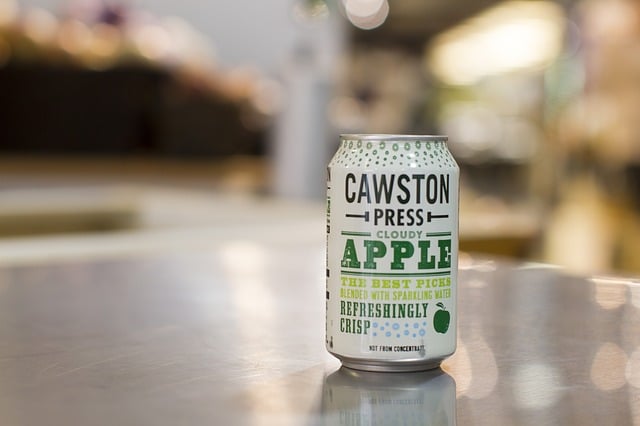To successfully translate UK product catalogs for a global audience, it's crucial to engage specialized translation services that understand both linguistic precision and cultural nuances. A seasoned UK product catalogs translation provider should be adept at handling industry-specific jargon, idiomatic language, and cultural references, ensuring that the translated content aligns with local consumer expectations and maintains brand integrity. This approach not only guarantees accuracy but also tailors visual elements and language to each target market, which is essential for resonating with international consumers and achieving sales success in those regions. By leveraging native speakers for every market you're targeting, you can create a product catalog that's both accurate and engaging, ultimately leading to increased market presence and revenue growth. This case study demonstrates the transformative impact of culturally sensitive translation services on a company's global expansion and sales performance.
UK businesses aiming to expand their reach globally must navigate the complexities of certified translation for product catalogs. This pivotal step ensures clarity and compliance for customers worldwide, a critical aspect of successful market penetration. Our comprehensive article delves into the intricacies of this process, highlighting the necessity for precision in translating product descriptions, understanding legal requirements across diverse jurisdictions, and selecting reliable UK Product Catalogs translation services to avoid common pitfalls. From the importance of professional expertise to strategies for quality assurance, each section provides valuable insights to facilitate your global expansion effectively.
- Understanding the Importance of Certified Translation for UK Product Catalogs
- The Role of Professional Translators in Global Market Expansion
- Key Considerations for Translating Product Descriptions Accurately
- Legal Requirements for Certified Translations in Different Countries
- The Process of Certifying Translations for UK Product Catalogs
- Choosing the Right Translation Services for Your Product Catalogs
- Common Pitfalls to Avoid When Translating Product Information
- How to Ensure Quality and Compliance in Translated Product Catalogs
- Case Study: Successful UK Product Catalog Translation and Localization Strategies
Understanding the Importance of Certified Translation for UK Product Catalogs

In the competitive arena of international trade, the meticulousness with which UK product catalogs are translated can often be the deciding factor in a company’s global success. Certified translation services play a pivotal role in this context, ensuring that every nuance and technical detail within these catalogs is accurately conveyed to multinational audiences. This level of precision is not merely about conveying the content; it’s about maintaining the integrity of the brand and its offerings across borders. Certified translators are adept at navigating linguistic intricacies, cultural contexts, and regulatory requirements that govern the translation of such documents, thereby opening up a plethora of opportunities for UK businesses. By employing professional UK product catalogs translation services, companies can eliminate potential misunderstandings and effectively communicate with diverse customer bases, thus paving the way for smoother cross-cultural transactions and enhanced market penetration.
The significance of certified translations extends beyond mere language equivalence; it encompasses a deep understanding of the local context and legal standards. In the UK, this is particularly crucial as documentation must comply with both national and EU regulations, which can be complex and vary significantly from one jurisdiction to another. Certified translation services bridge this gap by providing accurate translations that meet all legal and linguistic criteria, ensuring that product catalogs are not only understood in their intended languages but also recognized as authentic by relevant authorities and stakeholders. This level of assurance is invaluable for UK companies aiming to expand their reach and establish a strong foothold in the global marketplace.
The Role of Professional Translators in Global Market Expansion

In the realm of global market expansion, the role of professional translators is pivotal, especially when it comes to UK Product Catalogs translation services. As businesses aim to reach a diverse array of international customers, the precision and cultural nuance provided by skilled translators become critical. These experts not only convert text from one language to another but also adapt content to resonate with target audiences, ensuring that the tone, style, and intent of the original material are preserved. Utilizing UK Product Catalogs translation services allows companies to present their products in a way that is both locally relevant and globally consistent. This cultural finesse is essential for maintaining brand integrity and effectively communicating product features and benefits across different markets.
Professional translators equipped with UK Product Catalogs translation services are the cornerstone of successful cross-border transactions. They provide accurate, contextually appropriate translations that facilitate seamless customer interactions and compliance with regional regulations. Their expertise is instrumental in overcoming linguistic barriers, enabling businesses to navigate the complexities of international trade with confidence. By leveraging these specialized translation services, companies can ensure that their product catalogs are not just understood by global customers but also appeal to them on a local level, thereby expanding their market reach and fostering international growth.
Key Considerations for Translating Product Descriptions Accurately

When localizing UK product catalogs for global customers, translating product descriptions accurately is paramount. This involves a deep understanding of cultural nuances and language subtleties that resonate with each target market. To achieve this, translation services must employ skilled linguists who are not only proficient in the source and target languages but also familiar with industry-specific terminology. These professionals should possess a comprehensive grasp of regional dialects and colloquialisms to ensure translations convey the intended meaning without any misinterpretation. The translation process requires a meticulous approach, where context is king, and every nuance is captured with precision. This includes adhering to proper grammar, idiomatic expressions, and technical terms that are specific to the product. By leveraging specialized UK product catalogs translation services, businesses can bridge language barriers effectively, presenting their offerings in a way that appeals to local consumers while maintaining brand integrity and authenticity.
Legal Requirements for Certified Translations in Different Countries

Navigating the legal landscape for certified translations of product catalogs is a critical aspect for businesses aiming to expand their reach into international markets. In the UK, for instance, the Legal Professions Act 1984 outlines the regulations governing certified translations. A certified translation must be accompanied by a statement from the translator attesting to the accuracy and completeness of the translation. This certificate of accuracy is then signed and stamped by a recognized professional body, such as the Institute of Translation and Interpreting (ITI) or the Chartered Institute of Linguists (CIOL), or by an individual holding a similar authority. This ensures that UK product catalogs translation services meet the statutory requirements for official use in the UK, facilitating compliance with local laws and regulations.
For global customers, understanding the specific legal frameworks of each country is paramount. In Germany, for example, translations for official purposes must be performed by a certified or sworn translator, as outlined by the Bundesprüfstelle für Sieglachen und Übersetzungen (Federal Chamber of Interpreters and Translators). Similarly, in France, translations are to be carried out by a translator registered with the Ministry of Higher Education, Research, and Innovation. The precise requirements vary from one nation to another, necessitating a nuanced approach to ensure that translated product catalogs are legally recognized and acceptable in their intended markets. Companies must partner with seasoned UK product catalogs translation services that possess deep knowledge of these legal intricacies to navigate this complex terrain effectively.
The Process of Certifying Translations for UK Product Catalogs

When expanding your business into the international market, particularly within the UK, ensuring that your product catalogs accurately convey the intended information in the local language is paramount. The process of certifying translations for UK product catalogs involves a series of meticulous steps to guarantee both linguistic accuracy and legal compliance. Firstly, the translation services provider must select experienced linguists who are not only fluent in both English and the target language but also well-versed in the technical terminology specific to your industry. These professionals will translate the original product catalog with precision, ensuring that all product descriptions, specifications, and instructions are accurately rendered in the target language.
Upon completion of the translation, the text undergoes a rigorous review process, where it is scrutinized for accuracy, fluency, and cultural relevance. This review often involves native speakers who provide feedback to refine the content further. Once the translated catalog has been approved by your company, it is then submitted to a certified translator. The certified translator adds a formal certification statement to the translation, attesting to its faithful representation of the original document and confirming that it meets all legal requirements for use within the UK. This certification is crucial as it ensures that the translated catalog can be used for official purposes, such as submitting it to regulatory bodies or including it in legal contracts, thereby facilitating smooth business operations across different regions. Utilizing professional UK product catalog translation services with certified translators is an essential step for any business looking to successfully navigate the international market and ensure their product offerings are accessible to a global audience.
Choosing the Right Translation Services for Your Product Catalogs

When localizing your product catalogs for an international audience, selecting the right UK product catalogs translation services is pivotal to your business’s success. These services should offer a deep understanding of cultural nuances and linguistic precision to accurately convey your product information. Opt for agencies with native speakers who specialize in your industry, ensuring that technical terms and industry-specific jargon are translated correctly. This not only maintains the integrity of your content but also enhances its appeal to local markets. Additionally, consider translation services that leverage advanced translation technology coupled with human expertise to streamline the process while maintaining high-quality standards. This hybrid approach ensures that your product catalogs resonate with UK customers, facilitating a seamless user experience and fostering trust in your brand.
In your quest for top-tier UK product catalogs translation services, look for providers with a proven track record of working with businesses similar to yours. Their ability to adapt to your company’s specific needs, adhere to deadlines, and provide scalable solutions will be instrumental in effectively reaching your target audience. Furthermore, ensure that the chosen service is equipped with a robust quality assurance process to guarantee that all translations are accurate and culturally relevant. With the right translation services partnering with you, your product catalogs can successfully cross linguistic and cultural barriers, opening up new markets and opportunities for growth in the UK and beyond.
Common Pitfalls to Avoid When Translating Product Information

When localizing UK product catalogs for a global audience, it’s crucial to avoid several common pitfalls that can undermine the effectiveness and accuracy of the translated content. Firstly, translators should steer clear of using machine translation tools as they often fail to capture nuances, context, and cultural relevance, which are essential for accurate product descriptions. Instead, opting for professional UK product catalogs translation services ensures that translators with expertise in both the source and target languages handle the task, leading to high-quality translations that resonate with the local audience.
Another pitfall to be aware of is the lack of consideration for cultural references and idiomatic expressions that may not have direct equivalents in other languages. This oversight can result in misinterpretation or confusion among potential customers. To mitigate this, translation services should employ native speakers with a deep understanding of cultural nuances specific to the target market. This approach guarantees that all product information is conveyed appropriately, maintaining brand integrity and ensuring that the catalog aligns with local consumer behaviors and expectations.
How to Ensure Quality and Compliance in Translated Product Catalogs

When expanding your market reach to international customers, particularly in the UK, it is imperative to present product catalogues that convey accuracy and compliance. High-quality UK Product Catalogs translation services play a pivotal role in this process. To ensure quality, opt for professional translators who specialize in both the source and target languages, and have a firm grasp of industry-specific terminology. These experts are adept at capturing the nuances of your product descriptions, ensuring that technical details and marketing messages are faithfully translated without losing their original intent. Furthermore, compliance with local regulations, such as data protection laws, is crucial when handling customer information within product catalogues. A reliable translation service will not only provide linguistic precision but also adhere to legal standards across different regions, thereby safeguarding your business against potential legal issues.
In addition to linguistic and regulatory compliance, it is essential that the translated product catalogs align with cultural contexts. This cultural adaptation enhances customer engagement by resonating with local consumers. It involves not only translating text but also interpreting content in a manner that is culturally sensitive and relevant to the target audience. Utilizing UK Product Catalogs translation services that offer expertise in cultural nuances can significantly improve your product’s reception abroad, fostering trust and encouraging customer loyalty. By prioritizing quality and compliance, businesses can effectively communicate with global customers, thereby expanding their sales potential and establishing a strong international presence.
Case Study: Successful UK Product Catalog Translation and Localization Strategies

UK product catalogs often serve as the first point of contact between a company and its potential global customers. To effectively communicate with these customers, translating and localizing product catalogs is not just a matter of linguistic accuracy but also cultural relevance. A case study that exemplifies successful strategies in this regard involves a UK-based company specializing in high-end electronics. The challenge was to present their product catalogs in a way that would resonate with the diverse consumer bases across different regions, particularly in Europe and Asia.
The company’s approach began with selecting a reputable UK product catalog translation services provider with expertise in localization. They recognized the importance of not only translating text but also adapting visual elements to align with cultural nuances and preferences. This included color schemes, imagery, and even the layout design to ensure that the content was both linguistically correct and culturally appropriate. By leveraging native speakers for each target market, the company ensured that the translations were not only accurate but also captured the local vernacular and idiomatic expressions, making the product descriptions relatable to local consumers.
The result was a set of product catalogs that were not just translated into the target languages but were also optimized for each market’s preferences and purchasing behaviors. This strategic localization effort led to an increase in market share in the targeted regions, demonstrating the effectiveness of tailored translation services for UK product catalogs. The company’s commitment to understanding and respecting cultural differences paid off, as evidenced by their enhanced global customer engagement and sales growth in those markets.
In conclusion, the translation of UK product catalogs into various languages is a multifaceted endeavor that extends beyond mere linguistic equivalence. It encompasses legal compliance, cultural nuance, and precise terminology to ensure that global customers receive accurate and engaging information about UK products. By leveraging specialized UK Product Catalogs translation services, businesses can effectively navigate the complexities of international markets. Professional translators play a pivotal role in this process, offering expertise that transcends language barriers and facilitates seamless market expansion. Companies must diligently consider key factors to avoid common pitfalls and ensure the quality and compliance of their translated materials. The case studies presented illustrate the transformative impact of strategic translation and localization, underscoring the necessity for meticulous approach in this critical business function. With the right translation services, businesses can confidently reach a diverse customer base, thereby enhancing their global presence and fostering international trade relationships.
